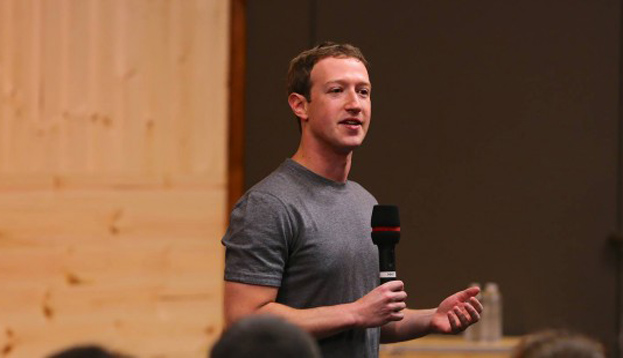Mark Zuckerberg gave his second Q and A today on a dedicated Facebook page, giving Facebook users a way to interact with the head honcho of the world’s biggest social media platform in the same way Facebook’s employees do.
This Q and A followed much the same format as the last one, with questions both from an actual audience at the event and popular questions on a Facebook thread posted beforehand.
First up was insight on whether or not Facebook will implement a “dislike” button. Mark Zuckerberg acknowledged that “sometimes people don’t feel comfortable pressing ‘Like’ for sad news,” but ultimately, he doesn’t think Facebook needs a “voting mechanism” to judge whether or not a post is good or bad.
When a question pooled from the Facebook thread called out Facebook as being a “time waster,” Zuckerberg rebuffed the question by saying he didn’t think there was anything wasteful about building relationships on the platform.
“We try to give everybody the voice to share the things that matter to them in so many ways,” he said.
One of the biggest issues at hand for Facebook as of late is their username policy. Very early on in the Q and A, this policy was addressed when Zuckerberg said other social platforms are more separate from reality, but the goal of Facebook is to be more connected to real life.
“If you’re connected to your real-life identity, there’s more accountability,” he said, going on to say it is an important part of what makes Facebook a safe platform. “We take our role in civic debate really seriously.”
Throughout the Q and A, there was a recurring theme of Facebook being taken more seriously than just a social platform. After all, in sheer user numbers, Facebook’s “population” would be higher than many countries. Zuckerberg feels that Facebook should be used like a public service, seeing the platform as a sort of social catalyst that makes a difference in the real world. Zuckerberg even called for politicians to connect with their constituents on Facebook:
“It’s important to know what people are talking about, not just analysts and people in charge of companies.”
Zuckerberg voiced his impatience in getting Graph Search off the ground for non-English speaking users now that the feature has rolled out for the mobile app. “A lot of Facebook right now is day-to-day; however, there’s a big opportunity to keep knowledge around, learn from wisdom,” he said about accessing and searching for the data in Facebook’s over a trillion individual posts.
Also touched on was Facebook’s very controversial study on how users’ emotions could be manipulated by the platform. Zuckerberg fumbled through the answer, saying it was important for Facebook to know how people could be affected by good or bad posts and how that influenced their behavior.
“We need to make sure that when we make changes, they’re positive social changes.”

